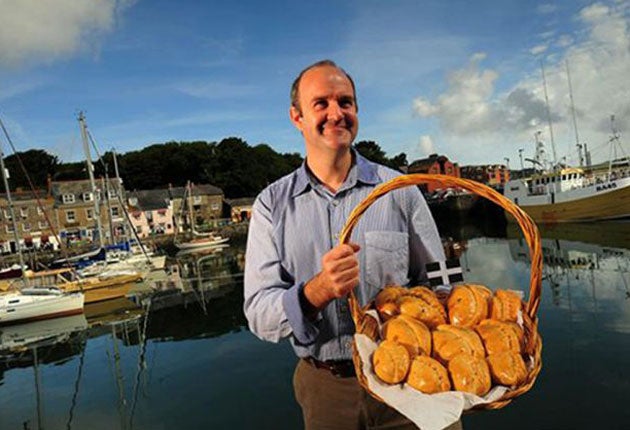Soon only pasties made in Cornwall will be able to be labelled as a Cornish pasty.
The world-famous treat has overcome a final legal hurdle and is expected to be awarded Protected Geographical Indication (PGI) by the European Commission next month.
It means only Cornish pasties made in Cornwall and following the traditional recipe can be called Cornish pasties.
The Cornish pasty has now joined another 42 British protected products including Cornish Clotted Cream, Melton Mowbray pork pies and Arbroath Smokies.
The decision was welcomed by the Cornish Pasty Association, which launched a campaign in 2002 to protect the heritage of Cornish pasties by submitting the application for PGI status.
Chairman Alan Adler said: "By guaranteeing the quality of the Cornish pasty, we are helping to protect our British food legacy.
"We lag far behind other European countries like France and Italy that have hundreds of food products protected and it's important that we value our foods just as much.
"Today's announcement does not stop other producers from making other type of pasties, but they won't be able to sell them as Cornish."
David Rodda, from the Cornwall Development Company, added: "Receiving protected status for the Cornish pasty is good news for consumers but also for the rural economy.
"By protecting our regional food heritage, we are protecting local jobs.
"Thousands of people in Cornwall are involved in the pasty industry, from farmers to producers, and it's important that the product's quality is protected for future generations."
A genuine Cornish pasty has a distinctive 'D' shape and is crimped on one side, never on top.
The texture of the filling is chunky, made up of uncooked minced or roughly cut chunks of beef, swede, potato, onion with a light seasoning.
The pastry casing is golden in colour, savoury, glazed with milk or egg and robust enough to retain its shape throughout the cooking and cooling process without splitting or cracking.
The pasty is slow-baked and no artificial flavourings or additives must be used.
Authentic Cornish pasties can still be baked elsewhere in the country but they will need to be prepared in Cornwall.
The PGI status is one of three European designations to protect regional foods that have a specific quality, reputation or other characteristics attributable to that area.
It acts like a trademark and stops manufacturers from outside a region copying a regional product and selling it as that regional product.
A spokesman for the European Commission said the six-month period to lodge objections to the listing of Cornish pasties on the PGI expired in January.
"There was no opposition and we can expect the final adoption by the middle of March," he said.

Join our commenting forum
Join thought-provoking conversations, follow other Independent readers and see their replies
Comments